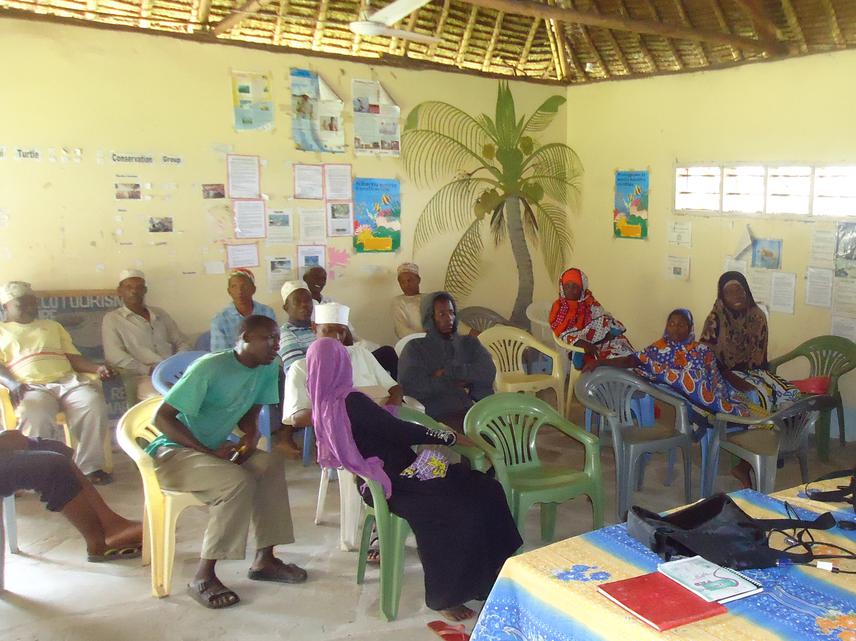Paul Mboya Tuda
Other projects
17 Sep 2014
Participatory Monitoring of Fisheries and Beach Management Training in Kenyan South Coast
The continuous use of illegal and destructive fishing gears remains one of the biggest challenges facing fisheries management at the Kenyan Coast. Typical to most artisanal fisher's catches are small immature individuals captured by undersize nets, which has contributed to both growth and recruitment overfishing of most common species landed. Despite the existing regulations, weak enforcement and insufficient support to community-led initiatives have only contributed to the ineffectiveness of these measures. Therefore, to increase the awareness and effectiveness of resource management, we propose an alternative approach. This involves working closely with fishers as key stakeholders to identify and use fishery indicators. The idea is to develop a community friendly guide to evaluating the status of the exploited species using scientific indicators translated to community level knowledge. The aim is to improve the management of marine resources and through a participatory process.

The project is a follow-up of the recently concluded participatory monitoring project at the Kenyan Coast, which was designed to create awareness at the community level on the need to continuously monitor and collect fisheries data to inform better management decisions through a participatory approach. The lessons learned have been valuable and have highlighted the importance of involving fisher communities in research and the benefit of sharing results on the changes that have occurred in the fisheries, which may not have initially acknowledged, thus prompting them to be more receptive to management intervention. In the second phase of the project, we intend to take a step further by developing a community friendly guide to assessing the status of the exploited species using scientific indicators translated to local level knowledge.
Using the traffic light approach, a term coined by fisheries scientist to describe and assess data-poor fisheries, the project aims to work with the fishing communities to identify and agree on a set of indicators (to be visually represented), which are sensitive to change and can easily, and repeatedly be measured to establish fisheries management response strategies at the community level. Through this approach, the status of the fisheries will be monitored continually based on existing fisheries data. This approach is a shift from the traditional fisheries stock assessment approach which is bottom down and is considered a precautionary approach. Moreover, it provides an opportunity to integrate fisher’s knowledge in the process. Ongoing results of the project will be presented and discussed with stakeholders through a consultation workshop.